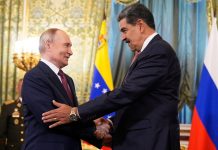Old Methods of Dictators
In recent years, rumors of Vladimir Putin’s ill health or even death have regularly circulated in global media and social channels. The sources of these rumors are often difficult to verify, and their emergence is frequently attributed to the Kremlin’s inner circles. Experts suggest that such information about the Russian president’s alleged illness may be deliberately controlled and disseminated by Putin or his associates. This tactic is not new among authoritarian regimes. Historically, dictators have often initiated or tolerated rumors about their own health to test the loyalty of their inner circle and identify potential threats to their power.
Testing the Loyalty of the Elite
Spreading rumors about Putin’s health—ranging from minor ailments to news of imminent death—can serve as a subtle form of political provocation. By observing the reactions of political and military elites, the Kremlin gains insight into who might exploit a perceived leadership vacuum for personal gain. This tactic acts as a loyalty test: those who make early moves to seek influence or power can be swiftly marginalized or eliminated. This method, allowing a controlled leak of troubling information, has long been employed by authoritarian regimes to identify and neutralize disloyal elements.
Pressure from Outside and Internal Divisions
Recent months have been challenging for the Kremlin. Russia faces growing international pressure, such as energy trade restrictions, including the G7’s price cap on Russian oil, and effective strikes on critical infrastructure like ports and crude terminals. These setbacks, combined with Russia’s increasing global isolation, have likely caused political and economic elites to question the leadership’s long-term viability. In this context, rumors about Putin’s health become a convenient tool to identify potential traitors and consolidate power.
Disinformation Directed Outward: Impact on Ukrainian Society
Rumors of Putin’s death or serious illness are not limited to Russia’s elites; they also have significant implications for Ukraine. Amid an ongoing war, such rumors can create false hope within Ukrainian society. A belief that Putin’s death would bring a swift end to the aggression could demobilize efforts and lower vigilance. However, experts warn that Russian policies may not change dramatically in the event of Putin’s demise. If hawkish elements remain dominant in the Kremlin, the war is likely to continue unabated.
Psychological Aspect of Information Warfare
Reports of Putin’s alleged death are not merely media curiosities; they are part of a broader psychological warfare strategy. These narratives can influence morale and threat perception. For Ukraine, maintaining public engagement in the war effort—from military support to humanitarian aid—requires sustained focus and determination. Illusory hope for a quick resolution could erode commitment and weaken Ukraine’s defensive posture.
A Successor in the Shadows and the Uncertainty of Change
It is essential to remember that Putin’s death would not provide simple answers. The absence of a clear succession plan and the complex dynamics within the Russian elite mean that a new leader might continue, or even intensify, current policies. A successor from the more hawkish factions of the military, oligarchic, or intelligence sectors could further escalate authoritarianism or aggression to consolidate power.
Campaign Element and Manipulation of Public Opinion
Some observers suggest that rumors about Putin’s health may also be part of preparations for his next presidential campaign. Russian propaganda has long cultivated the image of an “indestructible” leader. If claims of illness or death are later disproven, the Kremlin could use this narrative to bolster Putin’s image as resilient and invulnerable. By portraying Putin as overcoming crises—even “imaginary” ones allegedly fabricated by Russia’s enemies—the regime can reinforce public belief in his unyielding strength and the ineffectiveness of Western sanctions.
The Fog of Information Warfare
Rumors of Vladimir Putin’s illness or death serve multiple functions. Internally, they help test elite loyalty; externally, they sow uncertainty among adversaries and undermine their resolve. These rumors are also a component of a larger propaganda strategy to prepare for elections and sustain the myth of Putin as an indomitable leader. Ukrainian experts caution against falling for these narratives, as lowered vigilance could jeopardize the war effort. Victory in this conflict depends not only on military success but also on psychological resilience, making disinformation a powerful weapon in the Kremlin’s arsenal.
Artur Zhak





